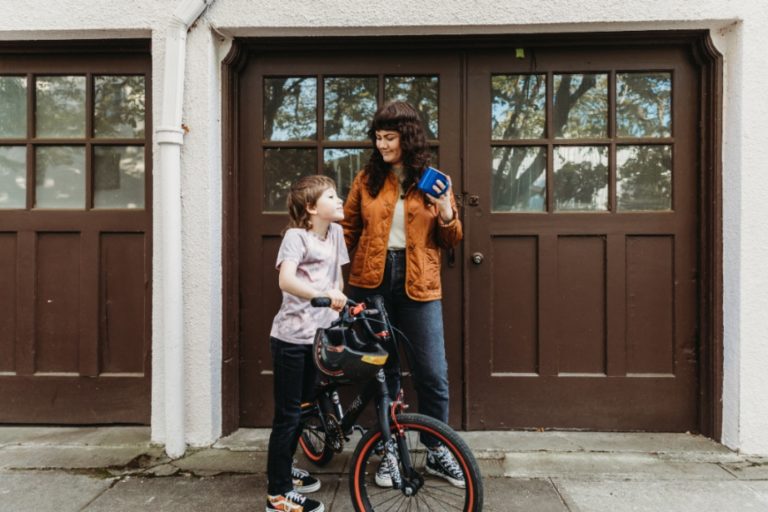Are you thinking about buying a foreclosed home? It’s hard to afford a house these days, so who wouldn’t get excited about something that looks like a bargain. But the fact is, for most people, buying a foreclosure is too complicated, risky, and expensive. Sorry.
This reality check comes courtesy of veteran broker and Realtor Dawn Lane, who has also earned a Short Sale and Foreclosure Resource (SFR) designation from the National Association of Realtors. Based in Las Vegas, one of the cities hit hardest by the 2008 housing crisis, Lane has more experience with foreclosed homes than she ever wanted. And she says that too often, a foreclosed home isn’t the bargain it might look like. Plus, the purchase process can be almost impossible for first-time homebuyers.
We know Lane to be an enthusiastic and optimistic woman, so when she’s all down on something, we listen.
Read on for the case against buying a foreclosure. If you survive this cold bucket of water over the head with your resolve intact, it’s followed by some must-do first steps. Every rule has its exceptions, and there are success stories out there!
1. The cost of repairs can far outweigh the savings
The most common mistake people make when they buy a foreclosure — known as a “distressed” property — is thinking that the price is the price. The cost of repairs can easily turn your “bargain” into a money pit.
Four stages or types of distressed properties get lumped under the term “foreclosures”: pre-foreclosures, short sales, foreclosures going to auction, and REOs (“real estate owned” sales). The further into the process a home gets, the more likely it is to be in bad condition.
“Depending on the stage, there may be repairs that the seller neglected due to financial strain,” says Lane. “For a foreclosure, the owners may be gone, and the property may have been sitting vacant for a while. An REO is bank-owned, the furthest along in the process, and probably in the worst condition. It’s likely been sitting empty for months or sometimes years with little maintenance.”
Imagine no electricity, vandalism, piles of abandoned stuff, and a wildly overgrown yard. Or a house that’s missing its appliances, fixtures, doors, and even copper pipes, all stripped out and sold. It can be pretty awful.
And that’s only what you can see, Lane adds. “Homes in the auction or REO stage of foreclosure will not include a seller disclosure, which might have alerted you to additional problems that a typical inspection might not uncover.”
2. You might need to budget for more property taxes
Let’s say you do buy a home that’s in bad shape, and you do fix it up. As you increase its value with all that fixing, your property tax bill will increase too. So you need to budget for taxes based on the likely value of the repaired home, not the distressed home you bought.
3. At auction, you could get caught in a bidding war
One of the challenges of homebuying is to keep your emotions in check. That can be hard even under normal circumstances. Now add the pressure of a cash-only, “as is” foreclosure auction. Inexperienced buyers can quickly get in over their heads.
“I honestly can’t see a first-time homebuyer going to auction to acquire a foreclosure property,” says Lane. “Buying at auction takes a high level of skill, and you’re there with investors who know what they are doing. You don’t just show up with a bucket of cash and outbid the others. It’s a process. You have to do your research and know what lies ahead, and you have to know the rules of the auction.
4. You could inherit the previous owner’s debt
Remember, the previous owner must have been strapped. What house-related bills besides the mortgage might not be paid up? Can you afford to take them on?
“The bank might require the buyer to pay for any debt connected to the home,” Lane warns. “Take the time to understand the financial burdens you’re assuming above and beyond your mortgage obligation. You could be looking at significant sums owed for property taxes, construction loans, or home equity lines of credit. Also for utility, sewer, and trash obligations, and homeowners’ association liens.
5. Financing can be difficult or impossible
Some lenders just plain will not offer mortgages for distressed properties, says Lane. And those that do might do it grudgingly.
Part of the problem is that the home might need so much repair, it can’t pass an inspection, she says. That means you probably won’t be able to use FHA, Veteran’s Administration, or conventional financing. (About half of first-time homebuyers rely on low-down-payment FHA, or Federal Housing Administration, loans.) That can amount to a “three strikes, you’re out” situation.
The appraisal can be a problem too. Most mortgages will be limited by the appraised value, and the condition of these homes often leads to very low appraisals, even in markets where home prices are rising fast.
Plus, Lane says, most standard loans have requirements regarding a property’s condition and might not go through if certain repairs aren’t done first. That’s a problem with foreclosed homes, which are usually auctioned off “as is.”
6. Time is money (sometimes a lot)
A foreclosure purchase can drag on and on. There’s extra paperwork, and response times are slow. And that’s not just frustrating: it can affect your financing.
“The bank works the deal in the bank’s time frame, not yours,” Lane says. “If your loan approval expires and interest rates increase, it could result in less favorable mortgage terms.” In a rising market, you could even get priced out of the home.
Take a short sale, for example. You’ll be waiting on the current owners, the primary lender, and any lien holders to approve your bid. In Lane’s experience, this can take six months to a year or more.
There’s also the fact that a contract to buy a distressed home can be canceled for any reason, at any point up to closing. If someone shows up with a better offer, you’ll lose the home, plus any money you sunk into inspection and appraisal.
Meanwhile, you may have passed up other good homes.
So, have you explored other options?
As you can see, foreclosures aren’t as affordable as they seem once you look past the list price. But it’s good that you’re thinking outside the traditional mortgage box. To help you keep going in that direction, here’s some more info on creative homebuying options:
- Tried-and-true strategies for overcoming the top five obstacles to affording a home
- Interesting government, private, and nonprofit options
- 10 cultural hot spots where home prices really are a bargain (or at least reasonable)
Still want to step up to the foreclosure challenge?
Well, all right then! Finding a foreclosure property that you want might take as much patience as buying one. Foreclosures are, thankfully, getting less and less common. Distressed sales accounted for only 5 percent of sales in January 2018. (After the 2008 crash, it was as much as 50 percent in some places.) But if you’ve read this far, you’ve got patience covered. So here’s how to get started.
Get to know the four types of foreclosure properties. We touched on them earlier. The most well-known, a foreclosure auction, happens at a certain point in what’s usually a long process. You can buy before or after that too.
Find a highly experienced real estate agent. Such as one with a Short Sale and Foreclosure Resource (SFR) designation from the National Association of Realtors (NAR). “You definitely do not want a novice handling a short sale or a foreclosure property,” says Lane, who is an SFR. Here’s the NAR lookup page.
Line up your financing early. Like we said, even lenders who will write loans for distressed properties don’t especially like to. A good agent will know which lenders are most likely to give you a green light.
Find a great home inspector. Remember, whatever stage of the foreclosure process you buy at, these are homes whose owners were financially stressed. They might have neglected important maintenance and repairs, not all of which will be obvious.
Hire a real estate lawyer. No matter how experienced your agent is, they can’t take the place of a lawyer. (A real estate lawyer can’t replace a great agent either.)
Good luck, and be careful out there!
Ready to take the next step in your homebuying journey with all the confidence of a smart and savvy homebuyer? Our comprehensive online homebuyer course is simple and easy to access on your computer, tablet, and mobile device. It’s all the information you need, all in one place. Go ahead and get started today.

